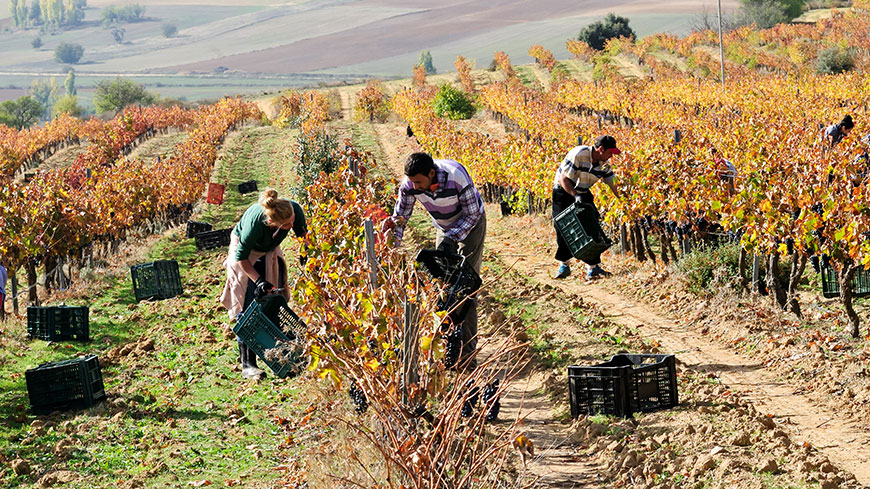Labour exploitation

Trafficking in human beings for the purpose of labour exploitation is one of the most challenging aspects of “modern-day slavery”. It is challenging on many accounts: because differences arise in practice in the interpretation and application of labour standards and in defining labour exploitation, because victims prefer not to lodge complaints or stand as witnesses as they are often dependent on their traffickers for work and housing, and not least because combating trafficking for the purpose of labour exploitation requires co-ordinated action between the State, civil society, trade unions and the private sector.
Trafficking for the purpose of labour exploitation as a term is used to differentiate between trafficking for the purpose of sexual exploitation, and trafficking for exploitative purposes in any economic sectors, both in the formal and informal economy. The concept of “labour exploitation” in the context of human trafficking is taken to cover, at a minimum, forced labour or services, slavery or practices similar to slavery, and servitude. These are notions that are well acknowledged in international law, including in the case law of the European Court of Human Rights regarding Article 4 of the European Convention on Human Rights (ECHR) prohibiting slavery and forced labour.
In November 2019, the Secretary General presented to the Committee of Ministers a “Roadmap on strengthening action against trafficking in human beings for the purpose of labour exploitation”. In accordance with this Roadmap, GRETA adopted, in September 2020, a compendium of good practices in the area of combating human trafficking for the purpose of labour exploitation. The compendium served as a basis for the elaboration of a Guidance Note on preventing and combating human trafficking for the purpose of labour exploitation, which GRETA adopted in November 2020.
Committee of Ministers’ Recommendation
On 27 September 2022, the Committee of Ministers adopted Recommendation CM/Rec(2022)21 on preventing and combating trafficking in human beings for the purpose of labour exploitation, which calls on Council of Europe member States to adopt national laws, policies and strategies which address trafficking for the purpose of labour exploitation, following a human rights-based and victim-centred approach. It draws on the monitoring work and guidance of GRETA, the case-law of the European Court of Human Rights, and the conclusions and decisions of the European Committee of Social Rights.
The Explanatory memorandum contains a comprehensive package of measures, in the following areas:
Prevention
- To prevent trafficking in human beings for the purpose of labour exploitation, member States should provide a social rights compliant environment that shields potential victims from vulnerability and protects them from the risk of falling victim to trafficking.
- Member States should acknowledge that a failure to scrutinise potentially irregular labour market practices prevents effective regulation and enables trafficking in human beings for the purpose of labour exploitation to flourish.
Protection
- Member States should reinforce and prioritise the detection of cases of trafficking in human beings for the purpose of labour exploitation and the identification of victims.
- Member States should adopt a victim-centred approach in combating trafficking in human beings in which the rights of the victims are guaranteed and prioritised over economic, financial, law enforcement and migration aims.
- According to the United Nations Basic Principles on the Right to an Effective Remedy for Victims of Trafficking in Persons, the right to an effective remedy should include restitution, compensation, rehabilitation, satisfaction and guarantees of non-repetition.
- Member States have an obligation to promote, respect and realise children’s rights and the principle of the effective abolition of child labour in accordance with ILO’s Minimum Age Convention (No. 138) and Worst Forms of Child Labour Convention (No. 182).
Prosecution
- Due to a lack of knowledge and diverse interpretations of trafficking for labour exploitation, there is confusion between labour law violations and trafficking in human beings for the purpose of labour exploitation.
- The absence of effective workplace inspections can create an inability to secure evidence to identify victims of trafficking for the purpose of labour exploitation, prove offences, and successfully prosecute offenders.
Partnerships and international co-operation
Action to enable corporate responsibility and enforce corporate liability
- Businesses have a legal and ethical obligation to guarantee labour rights and to protect persons working for them, whether through direct employment contracts or other arrangements, against exploitative practices, which include trafficking in human beings for the purpose of labour exploitation.
ECHR Article 4
Article 4 of the European Convention on Human Rights holds that no one shall be held in slavery or servitude and that no one shall be required to perform forced or compulsory labour.



